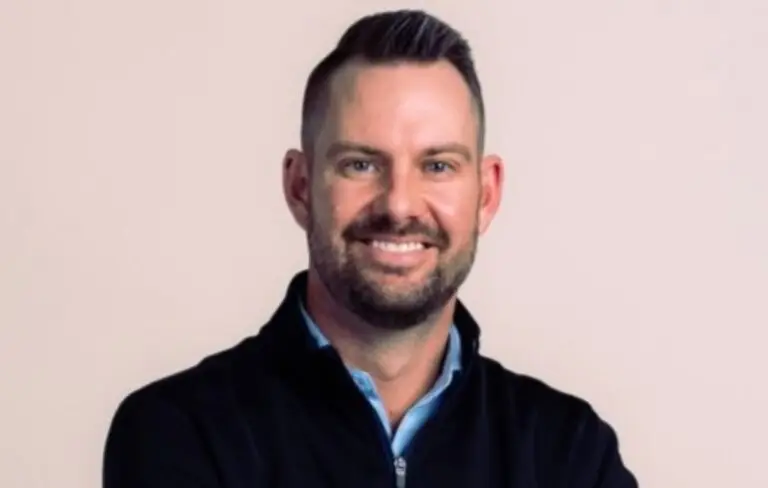Ask most CEOs about the word legacy, and chances are their responses will reflect the lasting imprint they hope to leave on their organizations. Legacy, however, speaks to far more than the contribution of any one leader, no matter how long their tenure. There is a broader impact to be made by everyone at every level—from the newest employee to the CEO—as they embrace, embody and express their shared mission and values.
Although the importance of living one’s values and giving to others was part of my upbringing, in the business world I first heard it expressed by William Graham, the long-time chair and CEO of Baxter International: “We are blessed to do well by doing good.” I took those words to heart throughout my nearly three decades at Baxter, including becoming chair and CEO. Today, in my classes at Northwestern University’s Kellogg School of Management, I explain to students the synergy between doing well and doing good, as a values-based leader and in building a values-based organization.
Over the years, there has been much debate on the role and responsibility of business, which as Nobel laureate Milton Friedman was famously quoted as saying was to “increase its profits.” Without question, organizations must uphold their fiduciary responsibilities to all stakeholders, including investors, employees, vendors and customers. At the same time, organizations can also strive to make a difference to others—whether locally, globally or both—as part of a legacy that is passed on with a sense of stewardship.
One way to seed a values-based legacy is with corporate giving. Given their vast resources and extensive reach, companies are increasingly expected to help fund philanthropic and social spending, often making up a gap in government funding. Often these resources come from company foundations that typically have specific mandates aligned with corporate social responsibility (CSR) or aligned with the priorities of a company, given its industry.
To truly grow a values-based legacy takes far more than making donations and grants. Within a values-based organization, people are encouraged to give their time and talent. Such activities are not merely one-time events. Rather, through ongoing commitments to corporate values, people engage in what matters to them—not only in their free time but also as part of their jobs, such as through employee volunteer programs. An example is Accenture’s partnership with Sky’s the Limit, a nonprofit that supports entrepreneurs from underprivileged backgrounds. The consulting firm recruits mentors for the program from among its global workforce, with more than 3,200 Accenture employees becoming Sky’s the Limit volunteers.
Although corporate-sponsored volunteerism and other acts of giving may appear to be a “nice to have,” these programs are increasingly a “must have” to improve employee engagement, increase productivity, retain motivated talent, and lower costs associated with turnover and recruitment. As an added benefit, when values-based talent rises through the ranks, these are the people who will help carry the torch for building and sustaining a values-based legacy.
Here are some tips and advice on establishing and building a values-based legacy within any organization:
• Understand the stakes. As Cognizant observed in its research, recent global events such as the pandemic, natural disasters, and demands for greater social justice have led many people to re-evaluate their life choices, including where and how they work. “Moreover, as older millennials reach their early 40s and Gen Z joins the job market, the career moves of these ‘purpose-led’ generations are increasingly central to businesses’ ongoing viability,” it added. Helping people feel fulfilled at work, however, can be challenging, resulting in a “purpose gap” experienced within many organizations. To close the gap, Cognizant concluded, organizations need to “step up their efforts” to demonstrate a sincere commitment to make a positive impact, “not just [on] shareholders but also employees, local communities and the world at large.”
• Commit to an organization-wide legacy. The occasional corporate-sponsored event—e.g., an office food drive at Thanksgiving time—is a “feel good” moment, but hardly sufficient to establish a legacy. It takes a deep commitment to the organization’s mission and values. Every team member should be encouraged to make a difference with customers, with colleagues, and in the communities where they live and work. An example is Northern Trust, a 135-year-old independent financial institution that has a long-standing reputation for involvement in local communities. It offers employees two paid days off a year to volunteer with charities of their choice, which over the past decade has amounted to more than 1 million volunteer hours. David Blowers, vice chairman of Northern Trust and a 42-year veteran of the company, recalled when he first joined. “Almost immediately I was asked to get involved with the YMCA,” he told me. “I was only 30 years old, and Bill Osborn, who was CEO at the time, asked me to be an observer on the YMCA board. By the time I was 32, I was a board member. We were all expected to be involved in the community—that was part of our cultural behaviors.”
• Help people find purpose in their work. Make no mistake—talented team members are as eager to learn and ambitious for advancement as they’ve ever been. However, even among the high potentials I see at Kellogg (including those who want to be a CEO one day) it’s not only about title and salary. They’re also looking for opportunities to find and experience true purpose in their work. At a technology company, that might mean finding ways to bridge the digital divide; or at a consumer goods company, it could be addressing food waste and improving nutrition in underserved communities. The more people experience purpose in all parts of their lives—and especially in their work—the more fulfilled they feel.
Option Care is a health care company that offers infusion therapy to patients. As chairman of the board, I am very proud of the management team, led by CEO John Rademacher, and the growth the company has experienced. Even more impressive is how Option Care commits to excellence by recognizing each patient as someone who is loved by others. “We are providing extraordinary care to someone’s loved one,” Rademacher told me. “It takes extraordinary people to do that.” The values-based legacy of care extends to Option Care colleagues, as well. Through the employee relief fund, team members can make small donations from their paychecks to a fund for colleagues who are facing unexpected health expenses, such as large deductibles for cancer treatment. The company then matches employees’ donations to the relief fund. The fund is another tangible way the Option Care team connects their sense of purpose with their work.
• Matching gifts with intention. Many organizations offer matching gifts that add a certain percentage (sometimes as much as 100%) to donations made by employees. For nonprofits, matching gifts are an important way of raising more funds—and for organizations, it’s an easy way to implement corporate giving. While such matching can be executed easily with a few clicks of an online form, we shouldn’t shortchange the intention behind these actions. As organizations track their matching gifts, they can see what matters to team members. This adds intention to the process and opens the door for more philanthropic collaboration.
For example, when I was CEO of Baxter, we set up a foundation. Rather than leaving it up to a team of senior leaders to decide where grants should be made, we invited team members to make recommendations. We were especially interested in learning where our people were actively involved as volunteers or in fundraising, such as poverty, education and housing. With this insight, the foundation could also support those causes and organizations because we knew it mattered to our colleagues. The leadership team believed this spirit of gift matching was one of the reasons why Baxter had very high employee engagement and one of the lowest turnover rates in the health care industry.
Building a values-based legacy goes beyond any one person. It takes an organization of people who share a commitment to make a difference—in what they do, in how they act, and in how they benefit the lives of others.







